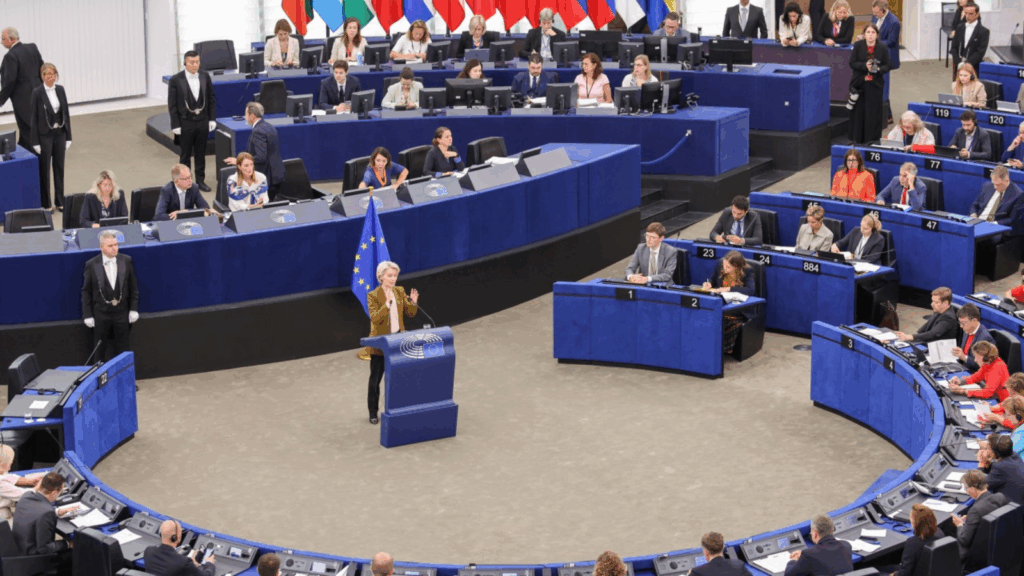Funding News
A. Social Europe Academy’s Basic Funding Training on 21 and 26 June 2024.
The two-part Basic EU Funding Training for Eurodiaconia members (2 parts) will be on 21 and 26 June 2024 (online via Zoom). The basic EU funding training covers the following topics: key EU programmes and recent calls relevant to Eurodiaconia members, how to work with proposals, where to find them, project partners in Europe, how to read a call for proposals, and needed documents.
Interested members may register here:
- Registration link to Part 1, 21 June 2024 (Friday), 13:30-15:00 Brussels/CEST
- Registration link to Part 2, 26 June 2024 (Wednesday), 13:30-15:00 Brussels/CEST
This basic training will be followed by an advanced training EU funding training in autumn. Course finishers will be given a certificate of completion at the end of the course.
Registration is until 18 June 2024. For questions or additional information, please contact Glenis – .
B. Economic governance review: European Council adopts reform of fiscal rules
The EU’s new economic and fiscal governance framework came into force on 30 April 2024 after the Council adopted three pieces of legislation a week after the European Parliament approved it. According to the Council, the main objective of the reform is to ensure sound and sustainable public finances, while promoting sustainable and inclusive growth in all member states through reforms and investment.
All member states will be asked to prepare a national medium-term fiscal structural plan that spans over 4-5 years, depending on the length of the national legislature. In their plans, member states commit to a multi-year public net expenditure path and explain how they will deliver investments and reforms that respond to the main challenges identified in the context of the European Semester, in the country-specific recommendations.
Ahead of this, the Commission will submit a ‘reference trajectory’ for net expenditure developments to member states where government debt exceeds 60% of gross domestic product (GDP) or where the government deficit exceeds 3% of GDP. This reference trajectory will consider the specific country’s sustainability challenges and it can ensure that after four years, government debt is in or remains on a “plausibly downward” path or stays at prudent levels over the medium-term. The new rules contain two safeguards that the reference trajectory must comply with: a debt sustainability safeguard and a deficit resilience safeguard.
The member states will include a net expenditure path into their national medium-term fiscal structural plans, which the Council needs to endorse and monitor.
As of the third quarter of 2023, the highest ratios of government debt to GDP, based on European Commission data, were recorded in Greece (165.5%), Italy (140.6%), France (111.9%), Spain (109.8%), Belgium (108.0%) and Portugal (107.5%), and the lowest in Estonia (18.2%), Bulgaria (21.0%), Luxembourg (25.7%), Sweden (29.7%) and Denmark (30.1%).
C. European Commission releases toolkit to support social housing in Member States
The European Commission has released a new toolkit to help policymakers make the best use of EU funding to invest in social housing and accompanying services. This initiative addresses the urgent need for affordable and decent housing, which is crucial for social inclusion and enables greater participation in education and the labour market. Eurodiaconia members who are engaged in homelessness, resettlement, social inclusion and related topics and services might be interested in this toolkit.
The toolkit contains 20 case studies that document how EU funds such as The European Social Fund Plus (ESF+), The European Regional Development Fund (ERDF), and The Recovery and Resilience Facility (RRF), can be used to improve access to adequate housing.
Addressing the needs of vulnerable populations, the toolkit outlines strategies for providing suitable housing solutions to homeless people, persons with disabilities, Roma communities, migrants, refugees, and LGBTIQ people.
D. The European Council approves payments to Ukraine for recovery, modernisation and political reforms under the Ukraine Facility
The European Council adopted on 14 May 2024 the positive assessment of the Ukraine Plan (signifying the intentions of the government of Ukraine to recover, reconstruct and modernise the country and the reforms that it plans to undertake for this), which greenlights regular payments of up to EUR 50 billion under the Ukraine Facility. Such payments to Ukraine will be disbursed by the EU subject to the implementation of the agreed reform and investments in the form of the qualitative and quantitative steps set out in the annex of the Council implementing decisions and to the upholding and respect of effective democratic mechanisms, including a multi-party parliamentary system and the rule of law, and to guarantee respect for human rights, among others.
This decision will enable the Commission to disburse up to EUR 1.89 billion in pre-financing until regular disbursements tied to the implementation of reform and investment indicators under the Ukraine Plan will start. The Ukraine Facility has indicatively earmarked EUR 32 billion to support reforms and investments. EUR 6 billion has been disbursed through bridge financing.



